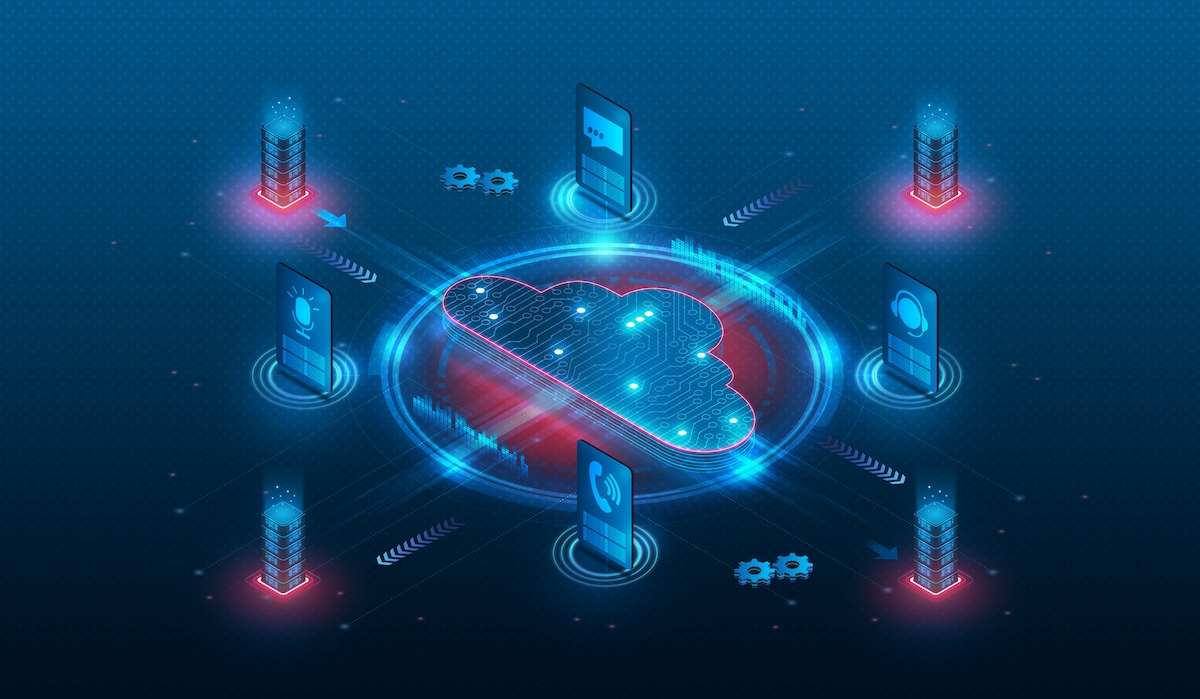Is your traditional call center still serving your business goals?
Many businesses think that they are—until they consider other options.
Traditional call centers are typically very dependent on in-person resources—both in-person agents as well as offices, hardware and physical tools that allow you to monitor and manage customer service calls.
However, modern Contact-Center-as-a-Service models (CCaaS) allow teams to work remotely from anywhere and access all of their call center tools and software via the cloud. Cloud-hosted contact centers not only provide more flexibility and scalability, they can also modernize and streamline the contact center process and support multi-channel or omnichannel customer interactions more seamlessly.
Is a CCaaS solution right for you? Or is a traditional call center the way to go? We’ll break down the benefits and challenges of each in this article and help you decide.
The Rise of CCaaS (Contact Center as a Service)
Contact Center as a Service models (CCaaS) provide a cloud-based software to manage your call center and customer service functions without relying on traditional hardware or call center equipment. In many cases, the CCaaS software is purchased as a subscription, with flexibility over how many “seats” or agents you need in your team.
CCaaS softwares also allow much more flexibility to integrate all of your customer communications into one platform and tool, allowing you to offer seamless omnichannel support. For example, while traditional models require different hardware and platforms for voice calls, email and so on, a CCaaS system can integrate inbound and outbound calls, webchats, emails, SMS, social media messages and more all into one platform.
As a result, CCaaS technology offers a number of advantages for modern businesses, including:
- more flexibility for remote staffing
- no need to rely on on-premise hardware
- elastic scalability and pricing so you can pay for only what you need
- seamless omnichannel support
- easier to manage 24/7 service and self-service solutions
- cloud-native technology can be more stable and scalable
While CCaaS software can support any modern business, some businesses still prefer a traditional call center.
Benefits of Traditional Call Centers
Traditional call centers won’t be obsolete any time soon, as they still offer unique benefits to businesses. For example, a traditional call center may be the preferred choice when:
- you need increased security and stability of managing your own hardware and on-premise solutions
- you already have an on-premise setup and don’t have the resources to manage a migration
- you don’t need the flexibility or functionality of CCaaS
- you only offer voice call support instead of multichannel support
In these cases, CCaaS may not be the best solution—or at least may not be a necessary solution. On-premise hosting makes sense when you have an in-house IT team capable of managing and maintaining your software, systems and support for your team. If you have this IT support, and want complete control over your security and infrastructure, then having a traditional call center can be beneficial to support those goals.
Omnichannel Contact Centers: The Best of Both Worlds
Omnichannel contact centers generally make use of CCaaS technology to provide streamlined support across multiple channels. While on-premise call center hosting typically only has technology for voice calls—or has several, unconnected technological solutions—CCaaS provides the ability to host all of your customer service channels and communications in a single system.
This allows your team to provide the omnichannel support that many customers today want and expect. With omnichannel support, you can shift your services toward a unified customer experience—which is shown to increase customer satisfaction, loyalty and retention.
- Companies with well-defined omnichannel CX programs achieve a “91% higher year-over-year increase in customer retention rate, on average” compared to companies who don’t use omnichannel methods.
- Omnichannel strategies drive around an 80% higher rate of in-store visits.
- Brands that have a strong omnichannel strategy see revenue returns 9.5% higher than those who do not use omnichannel strategies.
Implementing a CCaaS solution not only gives your customers a better experience, but it also drives customer retention and stronger revenue for your business, especially as customer expectations grow.
Ready to perfect your CX?
In-house vs. Outsourced Call Centers
Traditional call centers can either be in-house or outsourced, but CCaaS can support both types of call center models.
In-house call centers are run, operated and managed solely by your in-house team, and are typically stronger candidates for traditional hardware-operated call center models. If you have a strong in-house team to manage and maintain the hardware needed for a traditional call center, this can be a good solution.
However, integrating CCaaS technology for your in-house call center can give you much more flexibility and scalability, introducing new channels and improving efficiency and productivity. Not to mention that implementing CCaaS tools allows your IT team and management to free up time for more pressing projects and innovation.
Outsourced call centers are those that are managed and operated by an external company. While many outsourced teams have on-premise locations and agents, using CCaaS tools allows all outsourced team members—as well as your in-house staff—to access customer communication databases, and greatly reduces costs of operations. CCaaS solutions also provide increased stability and security for outsourced call centers, as cloud-based solutions aren’t subject to the maintenance and infrastructure of local teams.
Onshore, Offshore, and Nearshore Call Centers
Similarly, if you decide to outsource, you’ll need to determine if you want to work with an onshore, offshore or nearshore call center.
Onshore call centers are located in the same country as your business. CCaaS tools can allow your onshore agents to work remotely, allowing you to experience costs-savings when it comes to both overhead and operational costs as well as labor costs (as work-from-home agents can be hired from anywhere in the US, including cities with lower costs of living).
Nearshore call centers are located in a different country from your business, but one located geographically nearby. For US-based businesses, Mexico and Puerto Rico are common nearshoring locations.
Offshore call centers are located in a country geographically far from the country you operate your business in. For US-based businesses, India and the Philippines are popular offshore locations, though at Global Response we have offshore teams in the Philippines, South Africa, Tunisia and more. CCaaS tools allow your offshore teams to provide more stability and flexibility to your contact center operations, through cloud-based tools that generally have more uptime and a stronger infrastructure than local hardware would.
In addition, it allows your offshore or nearshore teams to offer a greater variety of services, including SMS, live chat, email, social media support and more, all with one integrated platform.
Selecting the Right Call Center for Your Business
When it comes to choosing between CCaaS and traditional models for your call center, there’s many factors to consider. Truthfully, CCaaS software can support teams in many types of call centers, from in-house to outsourced, onshore to offshore and more. When determining which model is right for you, consider the following chart:
| Consider CCaaS (Cloud-based) hosting if… | Consider on-premise hosting if… |
| you want to save money through pay-as-you-go, per-user costs for CCaaS’ subscription-based models | you have the resources and budget for higher upfront setup costs and long-term maintenance |
| you need to get up and running quickly (setup generally takes less than two weeks) | you have time to invest in a longer setup (typically takes several months) |
| you want agents to be able to work remotely | you have an in-house or in-person team that can always work on-premise |
| you want to reduce the amount of office and storage space needed for your team | you have ample office space, plus on-premise storage to host hardware and servers |
| you want to offer multi-channel or omnichannel support | you only need phone channels |
| you want a service provider who can maintain the software and hardware hosting your call center tools | you have an in-house IT team who can manage the software and hardware |
| you want the flexibility and scalability of a cloud-based solution | you prefer complete control over your security and infrastructure |
Ultimately, you should carefully consider your business’ goals, needs, budget and resources and then choose the model that provides you with the most support and resources to serve your goals while meeting customer expectations.
CCaaS as the Future of Customer Interactions
As customer expectations continue to rise, CCaaS is paving the way for the future of customer interactions by creating a unified, streamlined communications hub for customer experiences.
Not only that, but CCaaS provides increased flexibility and scalability, which will only become more important as our world becomes increasingly digital and global. With cloud-based technology, you can employ agents from anywhere in the world, and effortlessly connect with customers from anywhere in the world. Plus, you can easily scale up or down your team as needed, without spending additional money and resources on managing software or hardware that you’re not using.
CCaaS tools also provide:
- increased efficiency and productivity for your agents
- real-time performance dashboards to manage customer communications and service levels
- increased data analytics for stronger business intelligence
- automations and AI-powered tools that increase efficiency and consistency
- and more
Curious if a CCaaS system is right for your call center? Reach out to an expert from Global Response today—one of our team members would be happy to give you an overview of our CCaaS-based call center teams and how we can help you achieve your business goals.
FAQs
CCaaS (Contact Center as a Service) is a cloud-based software that allows you to manage all customer communications through a single cloud-based system, reducing reliance on in-house IT teams and on-premise hardware, and increasing streamlined communication across multiple channels. CCaaS systems typically support multiple contact channels, while traditional call centers only manage voice calls.
Ultimately, traditional call centers can’t compete with the flexibility of CCaaS. CCaaS tools allow agents to work remotely and reduce the need for on-premise hosting and storage, in-house IT teams, ongoing maintenance and more. Instead, your provider will be responsible for all of the back-end storage and support, and you’ll just need to focus on providing great service.
Omnichannel strategies provide exceptional customer service by creating a streamlined experience for customers. Rather than having to call to get support, customers can contact your team on any channel convenient for them, including email, SMS, web chat or social media. When they do, their entire history with your brand will be available for the agent, so they won’t need to repeat their concerns or experiences, and can jump straight into solving the current problem.
Consider your budget and timeline—CCaaS solutions are much faster and cost-effective to set up, as well as have more flexible costs long-term. In addition, you should consider your in-house resources (i.e. if you have an in-house IT able to manage and maintain your hardware) and your need for scalability and flexibility (more accessible with CCaaS solutions). Finally, don’t forget to consider your customer’s needs and expectations as well—as more and more customers come to expect omnichannel support, companies who neglect to offer modern solutions will end up lagging behind competitors.
As more and more customers come to expect omnichannel solutions, streamlined service and instant solutions, CCaaS tools are allowing businesses to deliver support that aligns with these expectations.




